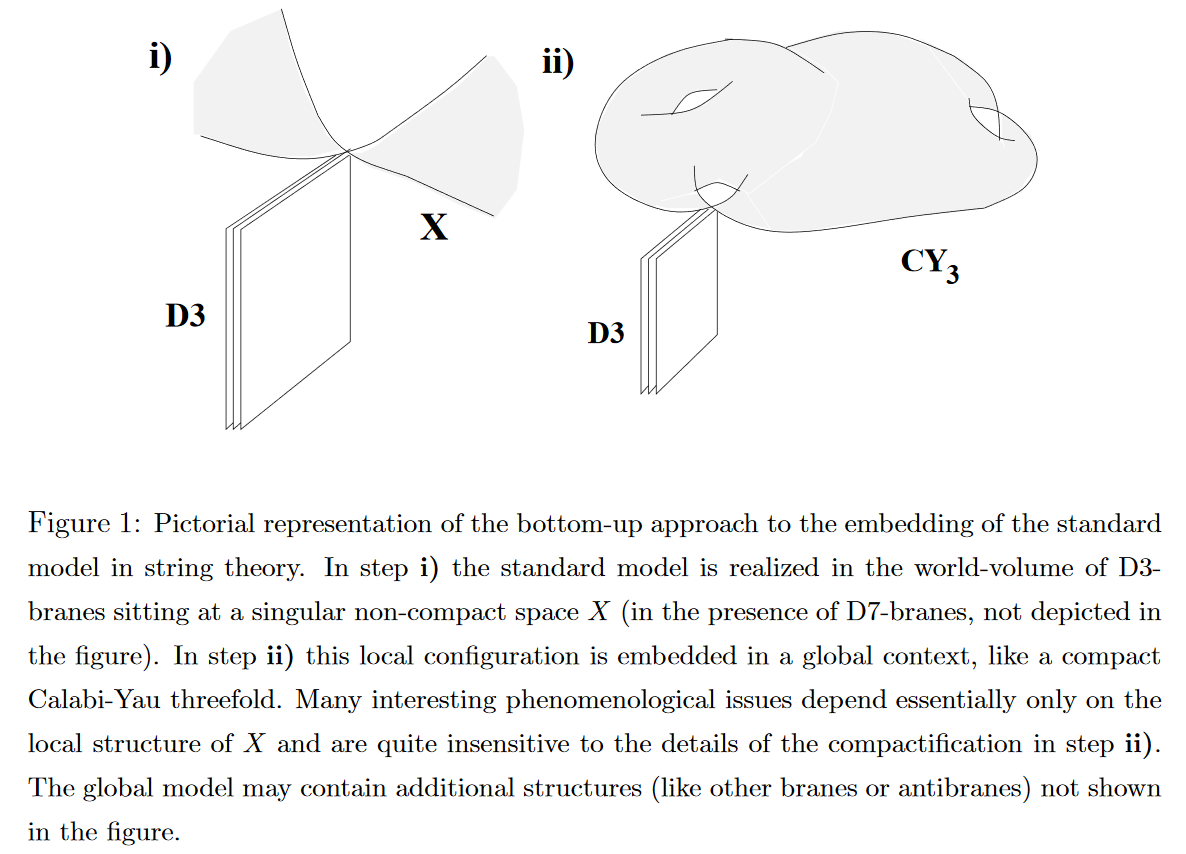nLab bottom-up and top-down model building
Context
Quantum Field Theory
algebraic quantum field theory (perturbative, on curved spacetimes, homotopical)
Concepts
quantum mechanical system, quantum probability
interacting field quantization
Theorems
States and observables
Operator algebra
Local QFT
Perturbative QFT
String theory
Ingredients
Critical string models
Extended objects
Topological strings
Backgrounds
Phenomenology
Contents
Idea
In particle physics phenomenology one distinguishes two strategies for constructing models of a theory with desired properties:
-
in a “top-down approach” one considers the full theory right away and tries to narrow in, in its space of models, to a subspace of models with the desired properties;
-
in a “bottom-up approach” one first specifies exactly which properties a model is supposed to have, and then incrementally uses the remaining wiggle room to see if this specification may be completed to an actual model of the full theory.
This distinction was highlighted, and the terminology established, in (Aldazabal-Ibáñez-Quevedo-Uranga 00); there in the context of discussion of string phenomenology and specifically of intersecting D-brane models in type II string theory. In fact the article proposes and advertizes the bottom-up-strategy, felt to be in contrast with the, at that time, dominant top-down-strategy going back to (Candelas-Horowitz-Strominger-Witten 85).

snippet grabbed from Aldazabal-Ibáñez-Quevedo-Uranga 00
For more on this see at string phenomenology the section Top-down models and Bottom-up models.
Related entries
References
In string phenomenology the terminology as such was introduced and specifically the “bottom-up approach” was advertized in
- G. Aldazabal, Luis Ibáñez, Fernando Quevedo, Angel Uranga, D-Branes at Singularities: A Bottom-Up Approach to the String Embedding of the Standard Model, JHEP 0008:002 2000 (arXiv:hep-th/0005067v2)
while the “top-down approach” in string phenomenology originates with
- Philip Candelas, Gary Horowitz, Andrew Strominger, Edward Witten, Vacuum configurations for superstrings, Nuclear Physics B Volume 258, 1985, Pages 46-74 Nucl. Phys. B 258, 46 (1985) (doi:10.1016/0550-3213(85)90602-9)
Last revised on July 18, 2024 at 11:32:22. See the history of this page for a list of all contributions to it.